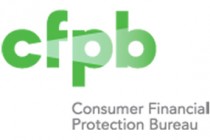CFPB To Consider Rules That Would Revoke Banks’ “License To Steal”
by Chris Morran, Consumerist
 The lengthy, often complicated terms of use for more than half of all credit cards — and nearly half of all federally insured bank deposits — include clauses that force customers into arbitration, taking away their right to sue these companies in a court of law and usually blocking them from joining together in a class action. Critics argue that these forced-arbitration clauses allow banks and other businesses to break the law with impunity. Heeding the call of lawmakers and consumer advocates, the federal Consumer Financial Protection Bureau has decided to consider rules that would ban this practice among financial institutions.
The lengthy, often complicated terms of use for more than half of all credit cards — and nearly half of all federally insured bank deposits — include clauses that force customers into arbitration, taking away their right to sue these companies in a court of law and usually blocking them from joining together in a class action. Critics argue that these forced-arbitration clauses allow banks and other businesses to break the law with impunity. Heeding the call of lawmakers and consumer advocates, the federal Consumer Financial Protection Bureau has decided to consider rules that would ban this practice among financial institutions.
For those unfamiliar with arbitration clauses, here’s how it works: Somewhere in the contract or user agreement with a company (it’s not just banks; cable companies, telecom providers, tech manufacturers, and others are increasingly doing this), you might find a paragraph or two, usually under the heading of “dispute resolution.”
You can’t change these terms and rarely have the choice to opt out, meaning you have no choice but to accept the full contract or use another product.
But if you ever have a legal dispute with that company, you’ll find that these few sentences prevent you from going to court. Instead, you’re forced to enter into a process of mandatory binding arbitration that heavily favors the business. They understand the process, know the arbitrators (sometimes a little too well), and any damages that can be awarded are very limited so the customer is unlikely to find anyone willing to represent them in their case.
Continue reading on Consumerist »
Tags: Banks, CFPB, Class Action, Credit Cards, Deceptive, Predatory Lending, Smartphones